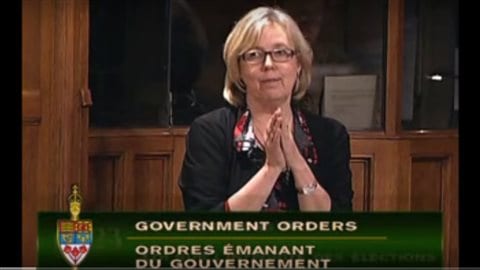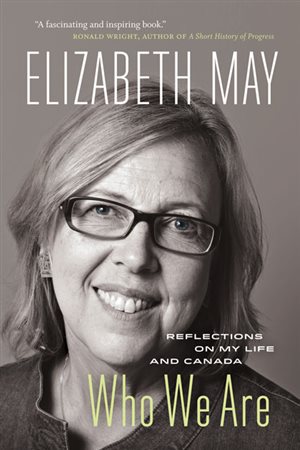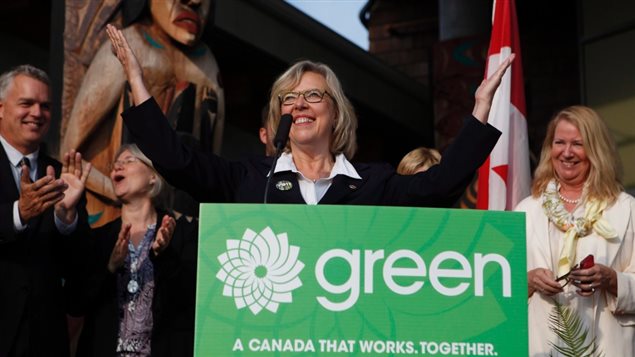In an era where most people are aware of the environment and humanity’s effect upon the Earth, the one Canadian party which prioritizes environmental issues is still a distant runner in the upcoming election.
Most media coverage, political debate and sniping takes place among the three main parties, the currently ruling Conservatives, the official opposition New Democratic Party, and the Liberals. Indeed in many media debates among party leaders, the Greens have not been invited to participate.
The two other significant parties are the Greens, and the Bloc Quebecois. The latter, although running in the federal election, is not a national party per se, but is a separatist-inspired party based solely in the mainly French-speaking province of Quebec and focused solely on Quebec concerns.

The Green Party of Canada grew essentially out of the world-wide non-violence and environmental movement of the 1960’s and 70’s. The idea of an environmental movement in politics gained momentum and credibility when the “Die Grunen” crossed the five percent vote and entered the West German parliament in the late 1970’s
Although there had been limited environmental political activity in Canada, the Green Party in this country officially came into being in 1983 and ran 60 candidates in the 1984 federal election. None were elected.
Since 2004, the Green party has been able to field candidates in all 308 political ridings but with extremely limited success, although securing over 4 percent of the popular vote. Under Canadian rules a party gaining more than 2 percent of the popular vote has access to federal party financing from the government.
In 2006, Elizabeth May became the leader of the Green party, and in 2011 on her third attempt was elected to office as the first and only Green member in Parliament.
May came to Canada from the US as a teenager in 1972, but was already an environmentalist from an incident in her childhood in Connecticut where a beloved pet lamb died mysteriously. She later learned that the roadside where the lamb often grazed had been sprayed with pesticide by the county, resulting in the poisoning death of the pet.

Since then she had been active in environmental and political issues in her adopted country.
May, now 61, is presently joined in Parliament by one other Green member, Ontario MP Bruce Hyer.
Leading a two-member party means both have to be aware and informed on a vast number of issues, and May’s knowledge and ability as a speaker has almost always impressed listeners.
With a focus on the environment the party is also concerned about such issues as homelessness, and the situation for aboriginal communities.
“It is no longer acceptable for Canadians, that any of us, should live without adequate housing. Housing is a human right, and in Canada as a wealthy country, we simply have no more excuses for our failure to ensure housing, May said during a campaign stop.
Speaking in Burnaby, British Columbia she said, criticized the current governing Conservative Party which she says has rolled out the welcome mat for rich foreign investors who buy up properties creating a shortage of land and property for affordable housing, especially in the lower mainland of B.C.
She also criticized the government focus on the oil sands. “All policies, whether environmental, or social, or you name it, have been sacrificed to getting as much unprocessed bitumen out of Canada to be refined in as many other countries as possible,” she said. “This is a strategy based on high-volume exports of a low-value product. It means for every barrel of bitumen we want to ship offshore, we’re shipping off jobs with it.”
She predicted there will be a minority government following the election and has urged people to vote Green.
She has often said the Green Party will work in collaboration with any party willing to support their policies on climate change, pharmacare, housing, electoral reform and others.
The Greens have set a goal of 16 seats in this election. Winning 12 seats would give them official party status under Canadian rules giving access to more federal funding and resources.







For reasons beyond our control, and for an undetermined period of time, our comment section is now closed. However, our social networks remain open to your contributions.